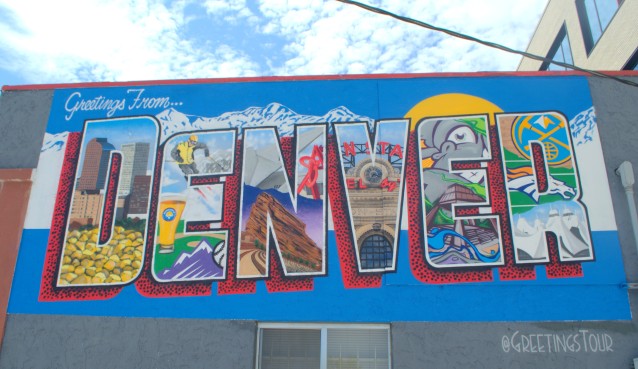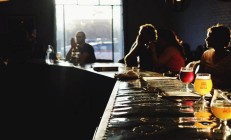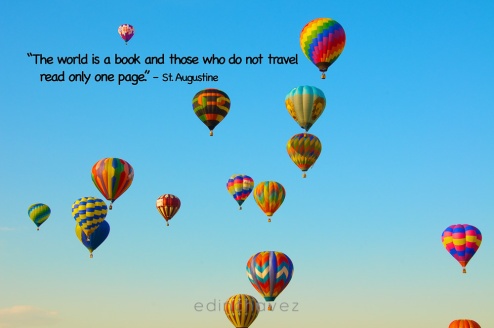Breweries keep popping up in Denver—land of the microbrews—like perennials in springtime, so much so that it’s become an established part of the city’s culture. The brews might be unique and varied (with no mainstream beers sold on site), but there seems to be a ubiquitous, overarching vibe wending through each garage door-fronted pub that looks a little something like this:
Walk up to the entrance and you’ll likely see a food truck parked out front. Denver breweries are all about the beer and very few offer a food menu outside of local beef jerky or trail mixes hanging behind the bar. This is a win-win for patrons and food truck owners alike as the cuisine alternates depending on the day of the week, offering options from street tacos to sushi to banh mi to suit your tastes. (Warning: if the Burger Chief food truck is your only available option, Go Hungry, unless you’ve been hankering for a touch of food poisoning.)
Don’t worry about trying to show up between 3-6, because prices are the same all day long. Instead, to cut costs, try a flight sampler or a half-glass if available.
As you make your way through the slew of dogs and kids bustling about at knee-level, feel free to pat their heads and tell them they’re being good boys and girls. Owners/parents are used to this and will ignore you like a drunk Uncle on Easter.
Inside, you might do a double take to make sure you’re in the correct pre-agreed upon place, because even if you’re in a new brewery, you’ll experience a flash of deja vu when you peruse the industrial-style design with repurposed wood and metal tables, the bare light bulbs and exposed pipes, and the visible barrels behind the glass wall where all the magic happens.
On the walls you’ll notice a theme amongst breweries—that all permanent art looks like it was commissioned by the same artist, an artist in love with the locale and the landscape who paints abstract and geometric mountains and plenty of Colorado flags in blue, yellow, and red.
The menu boards are colorful and hand-written, and possibly displayed on skateboards. For those of you who don’t imbibe, check the board for a kombucha brew, which is steadily becoming more common, then grab your trivia card to test your pop culture and historical knowledge, or sit down with your crew at a community table for a round of Apples to Apples or Uno. Before you leave, fill up a growler of your favorite brew to take home and maybe buy a T-shirt or sticker to show off your local pub love.
If you have trouble deciding which brewery to check out first, don’t fret. For the most part, it comes down to the neighborhood you’re in, the friends you meet there, and that little special something that stands out, like the repurposed airplane wing bar top and movie projections at Former Future, or the giant encased gears at Declaration. Whether you’re a native or just in town for the weekend, if you want a taste of a classic Denver experience, the microbreweries are where it’s at.
*This post is based off of Comrade Brewing, Declaration Brewing Co, Denver Beer Co, Fermaentra, Former Future Brewing Co, LowDown Brewery, and Platt Park Brewing Co.
Have a favorite not on the list? Feel free to comment with a recommendation.









